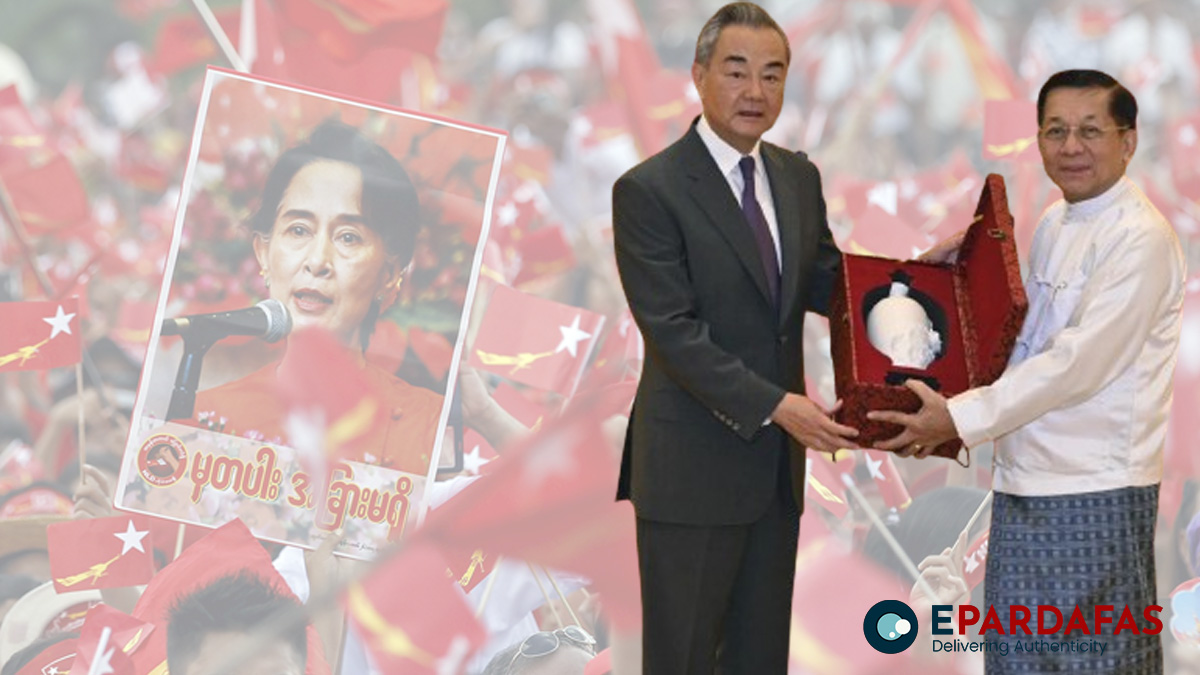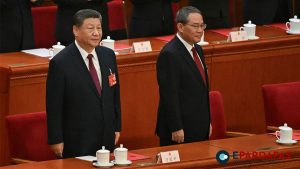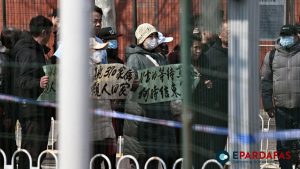
Myanmar’s Struggle for Democracy Deepens as China Backs Junta Amid Rising Public Resistance

China has committed to providing technical support and aid to Myanmar’s military government to conduct a census, followed by an election, according to state media reports on Thursday. This move signals Beijing’s continued backing of the junta, which is increasingly cornered by a growing armed rebellion and facing significant territorial losses.
Chinese Foreign Minister Wang Yi met with Myanmar’s junta leader Min Aung Hlaing on Wednesday during his visit to the capital, Naypyitaw. The two leaders discussed plans for an “all-inclusive election,” according to the Global New Light of Myanmar newspaper.
“Necessary technological assistance will be provided for Myanmar to conduct the census-taking process,” the state-run publication reported. “Moreover, essential aid will be given for the election.”
While China’s foreign ministry has yet to comment on the meeting, the pledge highlights China’s strategic support for Myanmar’s military leadership as it attempts to solidify control amid a protracted conflict.
Myanmar’s generals recently extended the country’s emergency rule for another six months to compile census data, which they claim is needed for voter lists. Min Aung Hlaing has previously stated that an election will be held next year, but the proposed election has been widely criticized as a sham, unlikely to gain recognition from most Western nations. Many political parties, including the dominant National League for Democracy—whose government was toppled by the military—have been disbanded for refusing to register to run. Most of the remaining parties are seen as proxies for the junta.
The Myanmar military, under pressure since it ousted the civilian government three years ago, is facing growing resistance from an armed rebellion, which has gained momentum as the country’s economy falters.
In addition to the election and census, Wednesday’s meeting between the Chinese and Myanmar leaders also touched on the situation in the restive border areas, efforts to eradicate online gambling and scams, and further economic cooperation.
The China-Myanmar border has been the site of intense fighting since last year, with the junta suffering significant defeats, including the fall of Lashio in northern Shan state—the first of 14 regional military commands to be taken by rebel forces.
Last October, a rebel alliance led by three major anti-junta groups launched Operation 1027 near the Chinese border, inflicting substantial losses on the junta. Though a temporary cease-fire was brokered by Beijing, fighting resumed in June, leading to the capture of Lashio by rebel forces.
Following his visit to Myanmar, Wang Yi is expected to attend a regional foreign ministers’ meeting in Thailand on Friday.












Comments